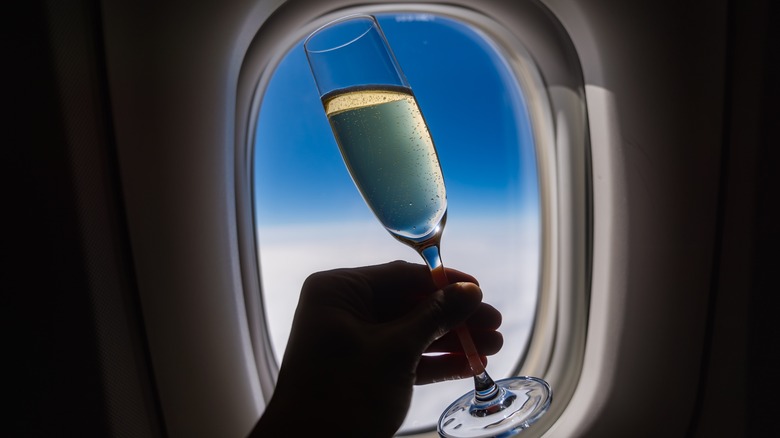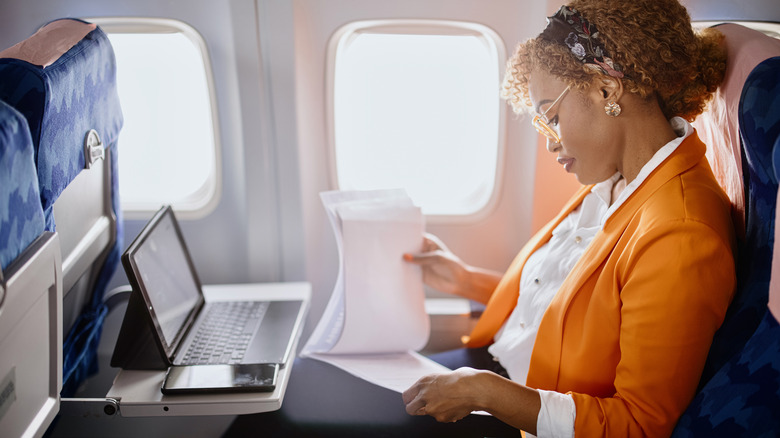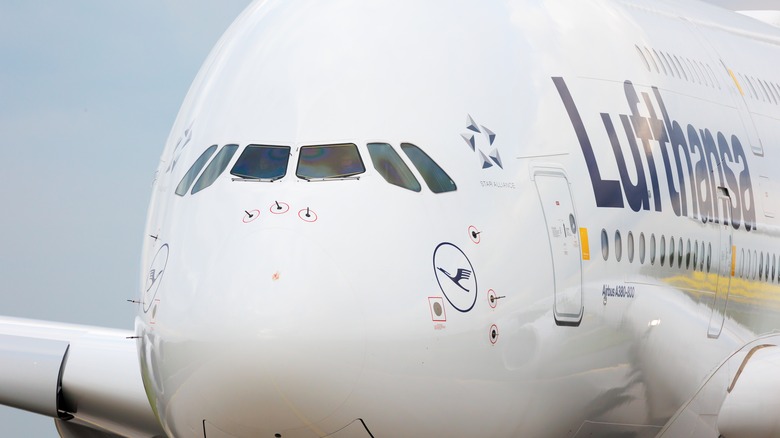Airlines Are Slowly Doing Away With First Class And Here's Why
If you can't remember the last time you had to walk through first class to board an airplane then it may be that the airline has quietly scrapped it. Similar to other carriers, American Airlines has stated their intention to gradually eliminate their international first-class seats. It is the last domestic airline to do so. Air Canada, United, and Delta have also stopped providing first class on non-domestic charters.
At a conference in 2023, Qatar Airways Group CEO Akbar Al Baker told The Telegraph, "We don't want to put first class in the aeroplanes because it is very expensive real estate." His comments highlight a trend with airlines trying to add more seats to planes, even if it means retrofitting them like AA and JetBlue have done to stay profitable. However, like anything in aviation, changes in design and types of passengers have also ushered in the demise of first class.
The rise of business class
While demand for first class may be on the wane, business class is booming. Part of the reason for this is that the offering is better than ever, but it still takes up less space on the airplane. Continental Airlines created BusinessFirst in 1992, which essentially combined the two classes, and ever since, this practice has been emulated by others. In 2000, British Airways changed the game again by becoming the first carrier to provide seats in business class that could lie flat.
American Airlines plans to offer "Flagship Suite" seats which will include beds that lie flat and doors for privacy to replace first class on international flights. The type of passenger is also changing on long-haul flights which is another reason behind the change. AA told Insider that while corporations used to buy a significant portion of seats pre-pandemic, now more travelers are buying upgraded seats for leisure purposes instead. For those people, business class suits them much better than first.
Other impacts on first class
It's not just demand that has affected first class, it is also the type of aircraft that is available. Both Singapore Airlines and Emirates have created mini-apartments for their highest-paying ticket holders in their double-decker airbuses. However, with A380 jumbo jets barely being produced anymore, an aircraft with only a single deck cannot house this type of luxury within its walls.
The arrangement of first-class cabins is also less flexible; if demand changes then it is more difficult to keep aircraft with these seats profitable than those with other types of premium class. A suite can also cost $126,000 to create and that figure doesn't include expensive perks like champagne and caviar. This makes profit margins slim for the airline, with multiple charters required to earn each one back. If a passenger isn't interested in a service where they're waited on and served expensive alcohol, then first class isn't worth it to them. As for the uber-rich, they may decide to purchase or hire a private jet which means that they eschew first class altogether.


